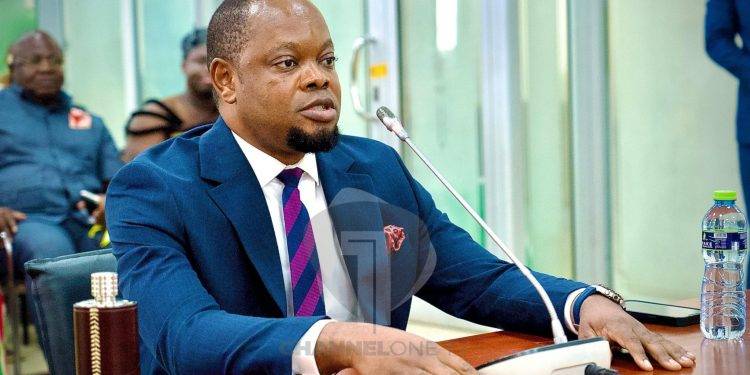In response to mounting public debates over the removal of justices in Ghana, Deputy Attorney General Dr Justice Srem-Sai has come forward to defend the constitutional confidentiality governing such proceedings. His remarks follow heightened scrutiny sparked by the recent suspension of Chief Justice Gertrude Araba Esaaba Sackey Torkornoo, which has stirred political conversation and civic concern nationwide.
Speaking on the Citi Breakfast Show on Wednesday, April 23, 2025, Dr Srem-Sai explained that the secrecy required by Article 146 of the 1992 Constitution is not intended to obscure the process from public accountability, but rather to strike a delicate balance between protecting individual reputations and upholding national interest. He insisted that the procedure, which is conducted in-camera, is essential in safeguarding the dignity of the justices involved, especially in cases where accusations could be unfounded or potentially defamatory.
This constitutional provision has recently come under critique, particularly from Professor H. Kwasi Prempeh, Executive Director of the Ghana Centre for Democratic Development. Prof Prempeh has called for reforms to increase transparency in the judicial removal process, suggesting that such secrecy undermines public trust in the legal system. In response, Dr Srem-Sai argued that the framers of the constitution were intentional in crafting a legal framework that shields judicial figures from unnecessary public trials while ensuring fairness is observed internally.
He clarified that while the hearing itself remains private, this does not necessarily mean that the outcomes or reasons behind such decisions would remain concealed forever. According to him, precedents exist where final rulings and details of past judicial removal proceedings were eventually made public. This, he noted, underscores the constitution’s intent not to suppress public knowledge, but to ensure due process is respected before information is released.
As public interest continues to grow, fuelled by the suspension of the Chief Justice, the issue has rapidly become a litmus test for Ghana’s commitment to judicial independence and democratic governance. While some citizens demand more openness, government officials like Dr Srem-Sai caution against jeopardising the reputations of high-ranking justices before allegations are fully vetted through the constitutional process.
His explanation also touched on the broader impact of public perception, suggesting that unnecessary exposure of delicate proceedings could damage not only the individuals involved but the credibility of the entire judiciary. It is this potential harm, he said, that the constitution seeks to avoid by mandating confidentiality throughout the process.
Dr Srem-Sai’s remarks offered insight into the legal reasoning behind one of the most contentious aspects of the country’s judicial framework, at a time when the rule of law remains a critical subject in national discourse. As stakeholders await further clarity on the Chief Justice’s situation, the Deputy Attorney General’s defence of constitutional confidentiality has added a legal and philosophical perspective to a growing debate over transparency, fairness, and the future of justice in Ghana.



